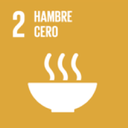CYRCLE
CYRCLE - Production of biostimulants from cyanobacteria and wastewater within the circular bioeconomy

Web: www.cyrcle.upc.edu
Description
In the context of the circular economy, the wastewater treatment field is shifting to consider wastewater as a valuable resource rather than a hazardous waste. In particular, during the last two decades there has been a growing interest in microalgae-based wastewater treatment systems, specifically in the potential valorization of the microalgae biomass to obtain valuable bioproducts such as bioenergy, biofertilizers or bioplastics. Recent studies indicated that microalgae and cyanobacteria can have biostimulants and biofertilizers assets, generating multiple benefits to the agricultural sector. Indeed, agriculture today is facing several issues that jeopardize environmental sustainability. The overuse of synthetic agrochemicals has resulted in massive ecological degradation throughout the world. In a context of growing global population and change in consumption patterns, there is a need for cost-effective and sustainable solutions to increase crop yields, and biostimulants and biofertilizer can play a significant role.
The CYRCLE project aims at investigating and evaluating the sustainable and cost-efficient production of biostimulants from cyanobacteria biomass cultivated in wastewater. The project promotes resource recovering from waste streams within in the framework of a circular bioeconomy.
Objectives
The general objective of the project is to investigate and optimize the production of biostimulants from cyanobacteria grown in wastewater.
In order to respond to the general objective, the following specific objectives and sub‑objectives have been considered:
- To optimize biostimulant-rich cyanobacteria production in wastewater.
- To characterize the phytohormones present in the cyanobacteria community previously selected.
- To assess the agronomic properties of the biostimulants obtained.
- To assess the economic, environmental and social sustainability of the biostimulants production and use, in order to estimate the feasibility of prospective large-scale production.
Impact
Results obtained within the CYRCLE project will expand scientific knowledge in the field of biostimulants production. From the scientific and technical point of view, the following relevant impacts will be obtained during the project:
- Guidance on the optimization of the operational conditions to enhance the biostimulants production by cyanobacteria in wastewater strongly supported by a mathematical model for scenario testing.
- Protocol for biostimulants characterization and quantification, which will be a useful tool to overcome the lack of a standardized methods for the characterization and quantification of biostimulants from cyanobacteria (and other microalgae).
- Increased insight into the effects of biostimulants on plants, through the application of HPLC and MALDI techniques together with the agronomic tests.
-
Sustainability assessment including the environmental, economic and social impacts of the biostimulants production and agricultural use, in order to foresee the feasibility of prospective large-scale production.
By investigating the production of biostimulants (to increase the crops yield and quality) from cyanobacteria biomass (a biological resource) grown in waste streams (a zero-waste approach), the CYRCLE project will contribute and generate knowledge towards the implementation of a circular bioeconomy in which waste streams are considered as resources for bioproducts generation.
- Sustainable use of resources from waste streams to satisfy the market demand for bio-based products.
- Sustainable agriculture and processing systems that can produce more food, fiber and other bio-based products with minimized inputs, environmental impact and greenhouse gas emissions, enhanced ecosystem services, zero-waste and adequate societal value.
- Increasing the quality and value of agricultural products by delivering more sustainable and productive agriculture, which are diverse, resilient and resource-efficient (in terms of low-carbon and low external input and water), protect natural resources and produce less waste.
- Provision of valuable data and information to the general audience, industrial audience and policy makers, which can give an insight to include biostimulants from cyanobacteria produced from waste streams in current and new fertilizer regulation.
ODS






Duration: September 2021 – August 2023


Share: